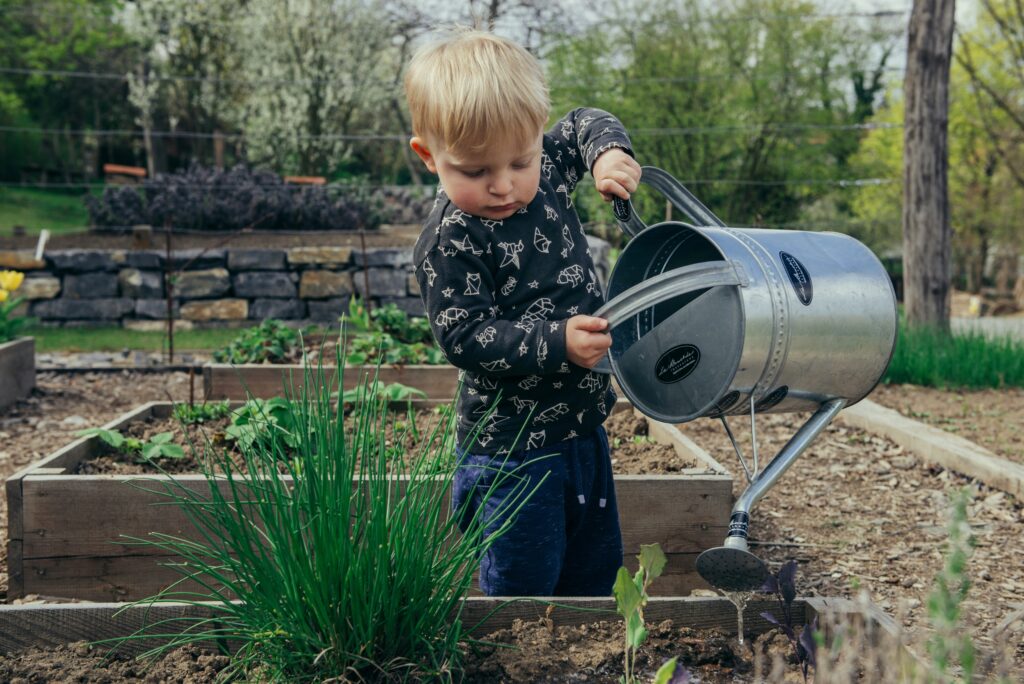In a world where independence is often hailed as a crucial trait for success, fostering autonomy in our kids becomes a significant goal for many parents. The journey of raising independent children is a delicate balance of nurturing their self-sufficiency while providing the necessary guidance and support along the way. As we navigate through the complexities of parenting, unlocking the secrets to cultivating independence in our little ones can be both a daunting and rewarding endeavor. Imagine a future where your child confidently tackles challenges head-on, makes decisions with conviction, and embraces their uniqueness without hesitation. This vision of empowered independence is not just a distant dream but a tangible reality that parents can help shape. In this insightful blog post, we delve into the essential keys that unlock the potential for raising independent children. From fostering a sense of responsibility to nurturing resilience, each key plays a vital role in cultivating the self-reliance and confidence that will empower your child to thrive in a rapidly changing world. So, join us on this transformative journey as we unravel the five fundamental keys to nurturing independent children and lay the groundwork for a future filled with limitless possibilities.
Encouraging Decision-Making Skills
Developing decision-making skills in children is crucial for fostering independence. Parents can empower their children by providing opportunities for them to make choices from an early age. Encouraging independent children starts with offering age-appropriate decision-making tasks to build their confidence and autonomy.
By allowing kids to choose their clothes, decide on weekend activities, or pick their snacks, parents nurture a sense of responsibility and self-reliance. Setting clear boundaries and offering guidance when needed helps in honing their judgment. Teaching independent children to weigh options, consider consequences, and take ownership of their decisions lays a strong foundation for their future success.
Teaching Responsibility Through Chores
Teaching responsibility through chores is a powerful way to instill independence in children. By assigning age-appropriate tasks, parents can nurture autonomy from a young age. Engaging children in household chores not only teaches them valuable life skills but also fosters a sense of accountability.
When parents involve children in chores, they are laying the foundation for independence. Encouraging kids to contribute to household tasks helps them develop a strong work ethic and a sense of responsibility. By empowering children to take on chores, parents are equipping them with the skills needed to become independent individuals in the future.
Embracing Failure as a Learning Opportunity
Embracing failure as a learning opportunity is crucial in raising independent children. Parents play a significant role in fostering autonomy in their kids. By allowing them to make mistakes, children learn resilience and problem-solving skills, essential for independence. Encouraging a growth mindset helps children view failures as stepping stones to success rather than obstacles.
One key to raising independent children is providing them with responsibilities. Assigning age-appropriate tasks teaches accountability and boosts their self-confidence. Another essential aspect is granting children the freedom to make decisions within set boundaries. This nurtures their decision-making skills and encourages independence. Embracing failure not as a setback but as a chance to learn and grow is key in fostering independent children who are well-equipped to navigate life’s challenges.
Setting Boundaries and Allowing Freedom
To raise independent children, setting clear boundaries is essential. Boundaries provide structure and guidance, allowing children to understand the limits within which they can explore their freedom. By establishing boundaries early on, parents can instill a sense of responsibility and accountability in their children, nurturing their independence while ensuring their safety.
However, it’s equally important to allow freedom within those boundaries. Giving children space to make choices and learn from their experiences empowers them to develop critical thinking skills and self-reliance. Balancing boundaries with freedom not only fosters independence but also builds a strong foundation for children to grow into confident and capable individuals. By striking this balance, parents can help their children thrive and succeed in various aspects of life.
Instilling Values of Independence and Individuality
Teaching children the values of independence and individuality is crucial for their growth and development. By instilling these values from a young age, parents can empower their children to become confident and self-reliant individuals. Encouraging independent thinking and decision-making helps in nurturing **independent children** who can navigate through life’s challenges with resilience.
Parents play a significant role in unlocking autonomy in their children. Providing opportunities for them to make choices, solve problems, and take on responsibilities are key elements in fostering independence. By nurturing **independent children** who value their individuality, parents pave the way for their children to grow into capable and empowered adults.
Conclusion: Empowering Your Child for a Bright, Independent Future
When it comes to preparing children for an autonomous future, the key lies in instilling independence early on. Encouraging independent children starts with fostering a sense of responsibility from a young age. By assigning age-appropriate tasks and chores, parents can nurture self-sufficiency in their kids. This hands-on approach cultivates a mindset of autonomy and self-reliance.
Moreover, guiding children to make decisions and solve problems independently strengthens their critical thinking skills. Empowering independent children involves offering support and guidance while allowing them the space to learn from their mistakes. This approach builds confidence and resilience in youngsters, setting them on a path towards a bright and self-sustained future.



